

Hemant Govind Pandit
Professor and Consultant Orthopaedic Surgeon, University of Leeds
I am Professor of Orthopaedic Surgery at University of Leeds and consultant surgeon at Leeds Teaching Hospitals NHS Trust in the UK. My clinical interest is management of patients with hip /knee arthritis and my research is aimed towards understanding the pathophysiology of osteoarthritis, optimising patient pathways and ensuring right treatment is offered to the right patient (suffering with osteoarthritis) at the right time and by the right person.
I am a NIHR senior investigator, member of various specialist societies including American Knee Society, European Knee Society and British Society for Surgery of the Knee. I lead a multi-disciplinary research team and currently my work involves pain management in patients undergoing knee replacement, use of wearable and implantable sensors, fractures around joint replacement and disease modifying treatments in patients with different types of arthritis.
Less ![]()

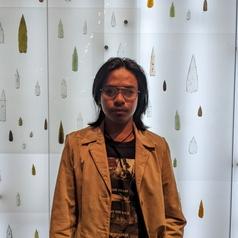
Hendri A. F. Kaharudin
PhD Student & Research Assistant, Australian National University
Hendri A. F. Kaharudin berhasil menyelesaikan gelar sarjananya di Universitas Gadjah Mada dan program pascasarjana di Australian National University dengan fokus penelitian zooarchaeology dan palaeoenvironmental. Penelitiannya banyak berhubungan dengan strategi adaptasi manusia purba di area pesisir pantai dan korelasinya dengan perubahan iklim global sejak masa Pleistosen hingga Holosen.
Ia banyak terlibat dalam penelitian arkeologi prasejarah di Indonesia Timur diantaranya yakni di pulau Kisar, Alor, Lembata, dan Obi. Keterlibatan penulis dalam penelitian tersebut banyak bekerja sama dengan peneliti lokal maupun internasional. Ketertarikan penulis terhadap arkeologi prasejarah dan perkembangan teori arkeologi telah dituangkan dalam beberapa tulisan ilmiah.
Less ![]()

Hendri Yulius Wijaya
PhD Student in Political Science (Joint Supervision with Business School), The University of Melbourne
Hendri Yulius Wijaya is a writer and corporate sustainability practitioner. He formerly served as the Indonesia Country Program Manager for the Global Reporting Initiative (GRI), which developed a set of international sustainability reporting standards, and also a Senior Manager for Sustainability services and a Diversity and Inclusion Champion at a multinational consulting firm.
Currently, he is pursuing a PhD in School of Social and Political Science (joint supervision with Faculty of Business and Economics) at Melbourne University, Australia.
He is also the author of "Intimate Assemblages: The Politics of Queer Identities and Sexualities in Indonesia" (Palgrave Macmillan, 2020), and co-editor of "Queer Southeast Asia" (Routledge, 2022). His academic and non-academic publications on gender, sexuality, cultural politics, and sustainability appear in Laws, Indonesia and the Malay World, The Jakarta Post, New Mandala, Indonesia at Melbourne, Tempo, Ecobusiness, Kontan, and edited collections published by Oxford University Press, Cornell University Press, and Bloomsbury Academic, among others.
Less ![]()

Henghameh Saroukhani
Assistant Professor in Black British Literature, Durham University
I am Assistant Professor in Black British Literature at Durham University. My research interests span the fields of black British and black Atlantic literatures and cultures, cosmopolitanism, new materialism, autotheory, and dub poetry. I hold degrees from the University of Alberta (BA, Political Science and English), the University of British Columbia (MA, English), and the University of Leeds (PhD, English).
Currently, I am working on three book-length projects. The first – near completion – is a monograph on the cosmopolitics of twenty-first-century black British literature and visual culture. The book excavates legacies of disavowed cosmopolitan thinking entangled within the creative and theoretical history of black British studies, more generally. The second project is based on my continuing archival work surrounding the arrival of the HMT Empire Windrush in 1948. This research was awarded a Social Sciences and Humanities Research Council (SSHRC) Insight Development Grant (2021-2023) and traces a global history of the ship through new materialist approaches. Lastly, I am in the early stages of a co-written book on immigration law, notions of documentality and experimental global migration literatures.
I am an Honorary Research Fellow at Birkbeck, University of London, and the Reviews Editor for the postcolonial journal ARIEL: A Review of International English Literature.
Less ![]()
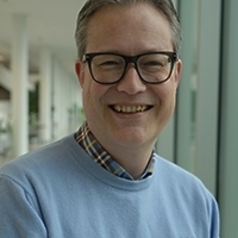
Henk Hoekstra
Professor in observational cosmology, Leiden University
I am an observational cosmologist that aims to shed light on the nature of dark matter and dark energy—the main ingredients of the Universe we seem to lack a good explanation for. To explore the dark side of the universe I use the bending of light rays by matter, a technique called weak gravitational lensing. Extracting the information from large imaging surveys is challenging, requiring careful calibration and corrections for instrumental effects. The inference of parameters poses challenges of its own. I have contributed to all aspects of the analysis chain thanks to leading roles in a number of ground-based projects. Now I am embarking on the next step in this journey: the harvesting of the vast and rich data provided by Euclid, an ESA mission to explore the dark universe. I coordinate the work on weak gravitational lensing for this large international project. Finally, I engage with the general public through lectures and collaborations with leading artists.
Less ![]()
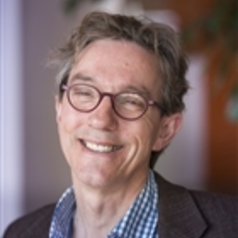
Henk A. Dijkstra
Professor of Physics, Utrecht University
Henk A. Dijkstra is a professor of physics with expertise in marine and atmospheric research and physical oceanography.
Less ![]()
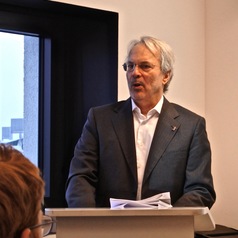
Henning Melber
Extraordinary Professor, Department of Political Sciences, University of Pretoria
Henning Melber (PhD) is also Senior Advisor/Director emeritus, The Dag Hammarskjöld Foundation, Uppsala/Sweden, Senior Advisor, The Nordic Africa Institute, Uppsala; Senior Research Fellow, The Institute of Commonwealth Studies/School for Advanced Study, University of London;
van Zyl Slabbert Visiting Professor for Sociology and Political Sciences at the University of Cape Town in 2017; Professor Extraordinary, Centre for Africa Studies/University of the Free State, Bloemfontein; Co-editor: Africa Yearbook/Managing co-editor: Africa Spectrum/Editor-in-chief: Strategic Review for Southern Africa
Less ![]()

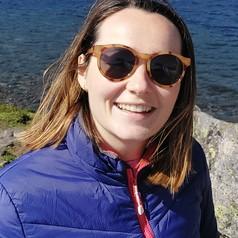
Henrietta Graham
Henrietta is a PhD student within the School of Sport, Exercise and Health Sciences at Loughborough University. She completed her BSc in Psychology at Queen’s University Belfast in 2018 and her MSc in Health Psychology at King’s College London in 2019. Prior to starting her PhD, Henrietta worked as a research assistant in Queen’s University Belfast on a project related to stem cell donation.
Within Loughborough University, Henrietta researches weight management, in particular whether a small change approach may be an effective strategy for helping the public to manage their weight.
Less ![]()
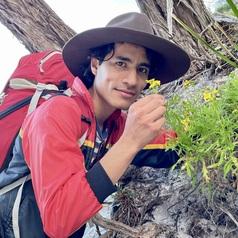
Henry Arenas-Castro
Postdoctoral Fellow, Yale University, The University of Queensland
Evolutionary biologist working on the evolution of mate choice in plants and the genetic basis of drought adaptation. Also a researcher of the consequences of language barriers in science.
Less ![]()
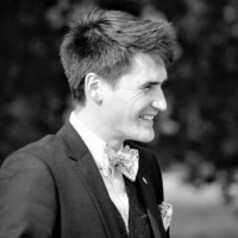
Henry Hillman
Lecturer in Law, University of Reading
Lecturer in Law at the University of Reading, specialising in financial crime, cryptocurrencies, and commercial law. I was awarded my PhD in 2021, my thesis analysed the money laundering threats posed by cryptocurrencies, critiquing the responses of the US, Australia, and the UK., and made proposals for incorporating cryptocurrencies into the perimeter of financial regulation. Since my PhD, I have been continuing to research cryptocurrencies, investigating the potential for money laundering to be detected through analysis of the blockchain.
Less ![]()
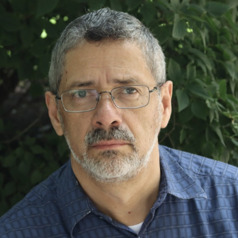
Henry Parada
Professor, Toronto Metropolitan University’s School of Social Work and the Immigration and Settlement (ISS) Graduate Program and Graduate Program Director, Toronto Metropolitan University
Dr. Henry Parada Prior to his academic appointment, Dr. Henry Parada spent nine years working as a child protection worker, conducting family counseling, and working as a sexual abuse specialist within Toronto’s social service sector. His academic experience includes working in the Caribbean, Central America, and other parts of Latin America on issues of child protection, human rights, and youth participation. He is a Cross-Appointed Professor at Toronto Metropolitan University and has guest lectured in universities in the Dominican Republic, El Salvador, and Honduras. Dr. Parada’s combined research expertise includes the areas of social development, children’s and women’s social welfare, and violence prevention. His ongoing program of research – focused on child protection, family violence, and children’s rights in seven regional areas of concentration – was awarded the SSHRC Partnership Grant for a seven-year, international project titled The Rights for Children and Youth Partnership (RCYP).
Less ![]()

Henry Parkes
Associate Professor, Department of Music, University of Nottingham
I completed my PhD in Musicology at the University of Cambridge (2012). Following a Junior Research Fellowship at Gonville and Caius College, Cambridge, I taught for five years at Yale University, where I was jointly affiliated to the Department of Music and Institute of Sacred Music.
My expertise is in the musical and religious cultures of medieval Western Europe, with special attention to Christian liturgical chant (including Gregorian Chant) and sacred polyphony, and the forms of worship in which they were was sung. I am fascinated above all by the men and women who created, memorised, disseminated and discussed music in the distant past, by the experiential dimensions of medieval worship (especially the Divine Office), and by the role of writing as both an enabler and an inhibitor of musical creativity in Western Music.
Less ![]()
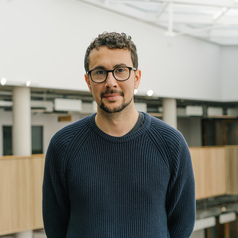
Henry Staples
Research Associate in Sociological Studies, University of Sheffield
Henry is a Research Associate at the University of Sheffield's Department of Sociological Studies and the Sheffield Methods Institute. His research explores how geography can help to understand and reduce urban conflict, by supporting community involvement in decision-making. His PhD explored the reintegration of guerrilla combatants in Colombia, and he is currently working on the projects 'De-Radicalisation in Europe and Beyond: Detect, Resolve, Re-integrate', and 'Life at the Frontier'.
Less ![]()
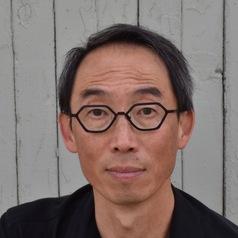
Henry Tsang
Associate Dean, Associate Professor, Emily Carr University
I am a visual and media artist and occasional curator. I am currently Associate Dean in the Faculty of Culture & Community at Emily Carr University of Art & Design in Vancouver, Canada.
Less ![]()

Henryk Haniewicz
Game developer and research fellow, University of Southampton
I am a game developer and research fellow at the University of Southampton. I obtained my Masters in Chemistry from the University of East Anglia in 2015, my Masters in Theoretical Chemistry from the University of Oxford in 2016 and finally my PhD in Physics, also from the University of East Anglia, in 2021. My research currently focuses on developing videogames which aim to enthuse and teach people about space and science generally. I am also involved in Outreach and science communication is extremely important to me. I also research the formation and evolution of double neutron star systems as well as designing new software to analyse these data. I have also previously conducted research in quantum optics and quantum electrodynamics.
Less ![]()
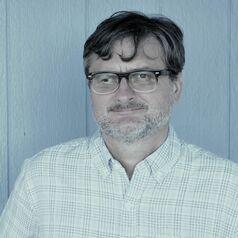
Henryk Szadziewski
Research Affiliate, Center for Pacific Islands Studies, University of Hawaii
Henryk Szadziewski is a Research Affiliate of the Center for Pacific Islands Studies at the University of Hawaiʻi at Mānoa. His work on China and US policy in Oceania has been published in Political Geography, Geographical Research, and Asia Policy. He is currently working on a book, Mapping Chinese Fiji.
Less ![]()
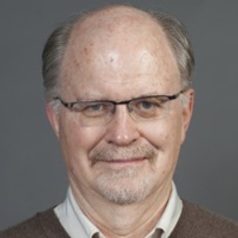
Herb Marsh
Distinguished Professor of educational psychology, Australian Catholic University
Professor Herb Marsh has been recognised as the most productive educational psychologist in the world. From 2006–2011 he was Professor of Education at Oxford University where he holds an Emeritus Professorship. He coined the phrase ‘substantive-methodological research synergy’, which underpins his substantive and methodological research interests. He is the founder of the International SELF Research Centre.
Less ![]()

Herbert McQueen
Research officer, Earth Sciences, Australian National University
Herb McQueen researches climate and ocean geoscience.
Less ![]()
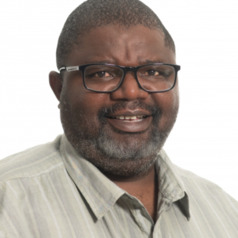
Herbert Ntuli
Senior Lecturer, University of Pretoria
Herbert Ntuli is a senior research fellow at the Environmental Policy Research Unit based in the School of Economics, University of Cape Town, and a senior lecturer at the University of Pretoria. He holds a PhD in economics from the University of Cape Town, where he worked as a postdoctoral research fellow upon completion of his studies in 2015 for five years and as a senior research officer in 2021 for one year. Herbert also joined WWF South Africa in 2019 for two and a half years, working as a wildlife economics and policy analyst. His research interests include livelihood, environmental valuation, community-based wildlife conservation, institutions, wildlife governance, collective action, transboundary resources, integrated water resources management and energy.
Less ![]()
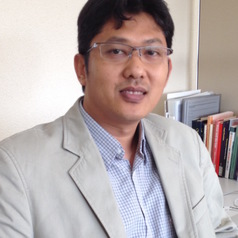
Herlambang P Wiratraman
Director at the Centre of Human Rights Law Studies, Universitas Airlangga
Director at Centre of Human Rights Law Studies (HRLS), Faculty of Law, Airlangga University, and also Coordinator of Indonesian Lecturer Association for Human Rights (SEPAHAM Indonesia). PhD graduated from Leiden University Law School (2014), and Master of Arts in Human Rights and Social Development, Mahidol University (2006).
Actively working together with numerous human rights groups in Indonesia and international forum, such as ELSAM, KontraS, YLBHI-LBH Surabaya,Protection International, Southeast Asian Human Rights Studies Network (SEAHRN) and Epistema Institute. Can be reached at [email protected]
Less ![]()
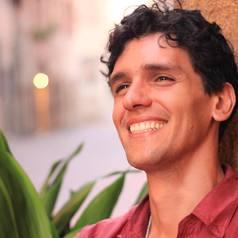
Hermes Bloomfield-Gadêlha
Mathematician, University of Bristol
Brazilian-born Dr Hermes Gadelha is a poly-disciplinary mathematician working on the mathematics of life. He works at the fertile union of mathematical logic, physics, engineering and robotics. Dr Gadelha is the head of Polymaths-lab.com "entangling maths, experiments & soft-robotics to disentangle nature".
Polymaths-lab.com has generated international recognition, with countless scientific publications, public talks and worldwide media press releases and TV interviews, including BBC, CNN, Science Magazine, New Scientist and Discovery Channel.
Less ![]()
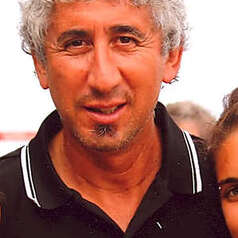
Hernan Humana
Associate Lecturer, School of Kinesiology and Health Science, York University, Canada
Hernán Humaña teaches socio-cultural issues related to health, physical activity and sports as well as the history and politics of the Olympic Games at York University’s School of Kinesiology and Health Science.
His upcoming books focus on his immigrant family’s sinuous journey toward representing Canada on the international stage, featuring his children Felipe and Melissa. The other book is a look into Chile’s violation of human rights affecting elite athletes during the dictatorship years.
Less ![]()

Herpreet Thind
Associate Professor of Public Health, UMass Lowell
Associate Professor Thind has degrees in clinical medicine and public health. Her research interests include physical activity and yoga interventions for chronic disease prevention and control. She has expertise in designing and implementing randomized controlled trials. She has been involved in various funded research projects including a NIH/NCCIH-funded project to examine the feasibility of yoga for adults with type 2 diabetes.
Less ![]()
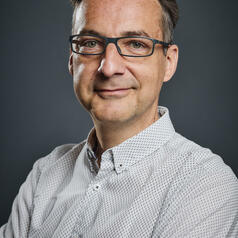
Hervé Dole
Astrophysicien, Professeur, Vice-président, art, culture, science et société, Université Paris-Saclay
Astrophysicien engagé dans les missions spatiales Euclid (ESA), JWST (NASA/ESA/CSA), Planck (ESA), Herschel (ESA), Spitzer (NASA). Cosmologie observationnelle, galaxies et amas de galaxies, infrarouge et submillimétrique spatial. Gestion de la recherche. Gouvernance d'université. Enseignement universitaire. Médiation scientifique. Science & Société.
Less ![]()
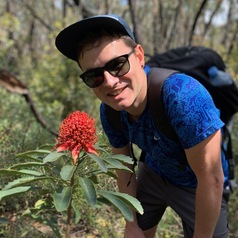
Hervé Sauquet
Senior Research Scientist, Royal Botanic Gardens Sydney and Adjunct Associate Professor, UNSW Sydney
I am an evolutionary biologist and botanist with a broad interest in macroevolution. My research interests concentrate on questions of floral evolution and macroevolution of angiosperms (flowering plants).
Less ![]()
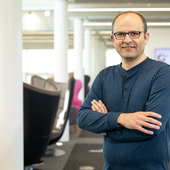
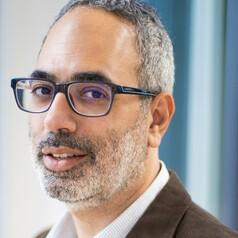
Heski Bar-Isaac
Distinguished Professor of Economics and Finance, University of Toronto
Heski Bar-Isaac is the University of Toronto Distinguished Professor of Economics and Finance and a fellow of the CEPR and CRESSE. He has published widely in leading general-interest and a variety of leading field journals in economics and finance. He is particularly well known for his work on models of reputation (applied to finance, organizational economics, and industrial organization) and consumer search, and for his economics haikus. He currently serves as managing editor for the Economic Journal, as an associate editor for the RAND Journal of Economics, and on the board of editors for the American Economic Review, and as the area coordinator for the Economic Analysis and Policy area at the Rotman School of Management at the University of Toronto.
Less ![]()

Hestia Moningka
Clinical Fellow of Psychology, UCL
Hestia is a Clinical Research Fellow based in the Department of Clinical Educational and Health Psychology (CEHP), with teaching and course tutor duties on the Doctorate of Clinical Psychology (DClinPsy) training programme. Alongside this, she works clinically within a CAMHS disability service and is working towards completing a PhD aimed at better understanding mood and reward dynamics underpinning experiences of mood disturbances using a computational fMRI approach.
Less ![]()
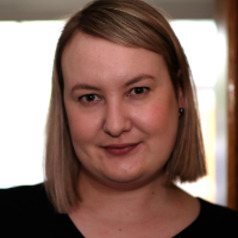
Hilary Bowman-Smart
Research Fellow, Australian Centre for Precision Health, University of South Australia
Hilary Bowman-Smart is a Research Fellow at the Australian Centre for Precision Health. She commenced her role in 2023. She previously held a position as Researcher in the Ethics of Prenatal Genetics and Genomics at the University of Oxford between 2021 and 2023. In this role, she worked on a project comparing the implementation of non-invasive prenatal testing (NIPT) in England, France and Germany, with her research conducted in both English and German. She has also been a visiting fellow at the University of Augsburg, and holds honorary positions at the Murdoch Children's Research Institute and Monash University.
Hilary is an empirical bioethicist with a background in both genetics and philosophy. She was awarded her PhD by the University of Melbourne in 2022, receiving the Dean's Award for Excellence in Graduate Research. Her research approach involves ethical analysis that is informed by various types of empirical research, such as surveys, statistical analysis, and qualitative interview studies. Her areas of focus are reproductive ethics, genomics, and the philosophy of health and disease.
Less ![]()
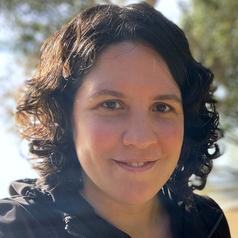

Hilary Stace
Honorary Research Associate, Te Herenga Waka — Victoria University of Wellington
Hilary Stace has a long involvement with autism and advocacy issues. She researched New Zealand autism policy for her 2011 PhD and found that complex, often contradictory understandings of autism and approaches signalled that autism could be considered a wicked policy problem.
Current research interests include disability, particularly autism and intellectual impairment, ethics (history, policy etc), New Zealand history, particularly disability, education, women, activism, politics etc.
Less ![]()
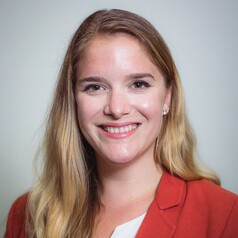
Hilary A. Diefenbach
Speech Language Pathologist and Cognitive Rehabilitation Specialist, Marcus Institute for Brain Health; Instructor, University of Colorado Anschutz Medical Campus
Hilary Diefenbach, MA, CCC-SLP, CBIST is a licensed Speech Language Pathologist at the Marcus Institute for Brain Health (MIBH) and Instructor in the University of Colorado (CU) School of Medicine. Hilary specializes in brain injury rehabilitation for adults. Hilary began her Speech Pathology career in inpatient rehabilitation serving at the Kessler Institute for Rehabilitation for patients recovering from stroke, traumatic brain injury, and other complex medical problems. Hilary joined the MIBH in 2018, where she leads the Speech Pathology Department as part of an interdisciplinary team specializing in intensive outpatient rehabilitation for U.S. Military Veterans and Emergency Responders with a history of mild-to-moderate traumatic brain injury, psychological health changes, and related health sequelae. Hilary is passionate about medical education, precision and preventative medicine, and interdisciplinary care design within her clinical and academic work at the University of Colorado. In her free time, Hilary enjoys time outdoors in the Rocky Mountains, music performance, and FaceTiming her nieces and nephews back home in Washington DC.
Less ![]()
- Market Data























